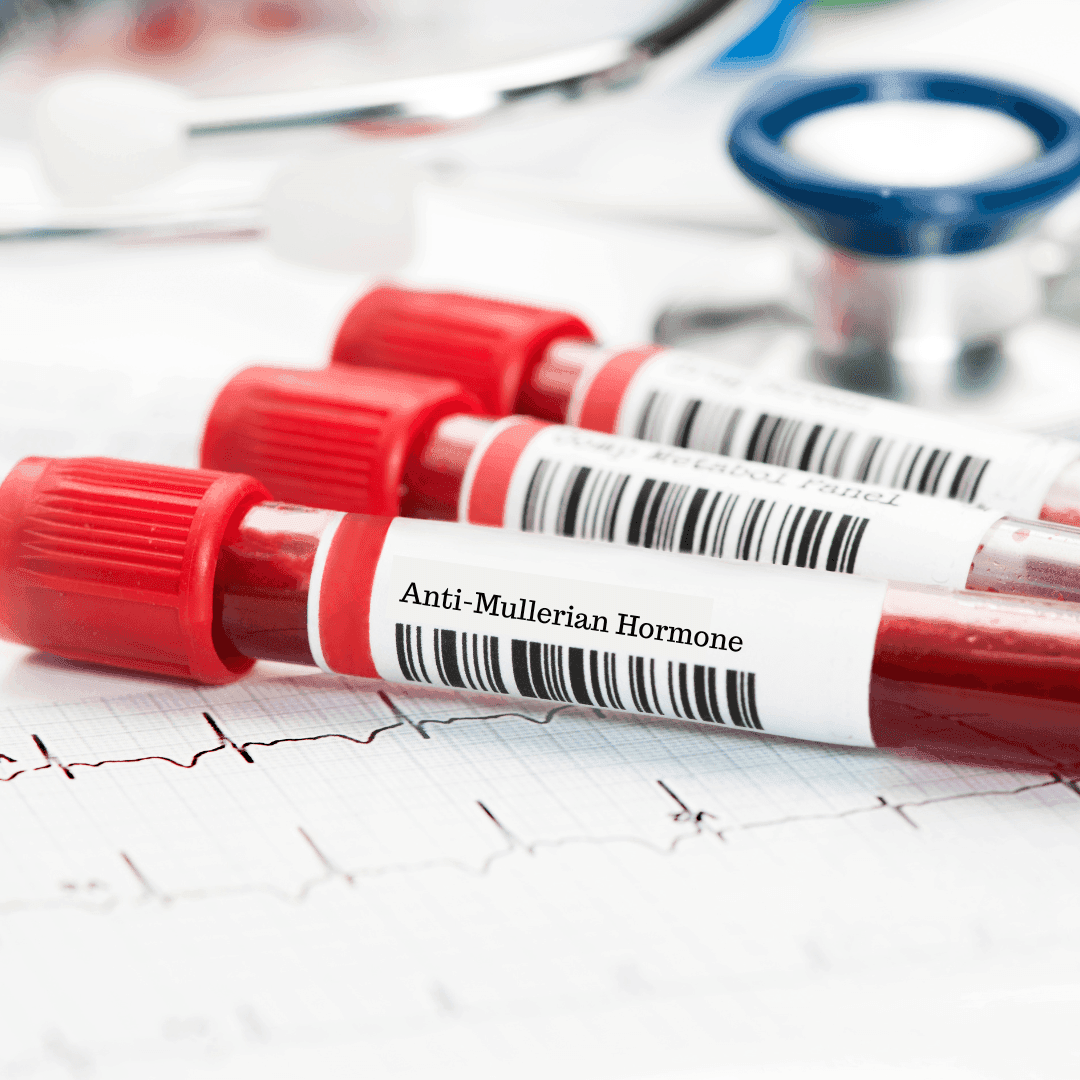
AMH, Anti-Mullerian Hormone, is a hormone made by your pre-antral and antral follicles. These follicles have immature eggs (oocytes) in them.
AMH is a test that is used to gauge ovarian reserve for fertility purposes.
In PCOS, polycystic ovary syndrome, AMH can be elevated.
In fact, recent international PCOS guidelines have included AMH testing as part of diagnostic testing in adults (not in adolescence). So, the updated PCOS diagnostic criteria now is that you have to meet a minimum of 2 out of the following:
Anovulation or Oligo-ovulation (i.e., not ovulating or irregularly ovulating, usually identified using cycle length, bleeding patterns, etc.)
Clinical or biochemical signs of hyperandrogenism (i.e., elevated testosterone or DHEA or androstenedione in blood and/or symptoms such as cystic/nodular acne, pattern hair loss, and hirsutism)
Polycystic ovaries on ultrasound or elevated AMH (this criterion is not applicable in adolescence)
PCOS is also a diagnosis that is made AFTER we've ruled out other causes of these symptoms like thyroid disorders, adrenal hyperplasia, and such.
This means that if you have PCOS, your AMH levels might not actually be telling you about your egg reserve.
It might simply be telling us that you have lots of immature follicles in your ovaries that aren't growing as they should.
In PCOS, AMH tends to be higher in those who have polycystic ovaries.
So, it's not that everyone with PCOS has elevated AMH levels. It's simply that we need to take your AMH levels in accordance to what else is happening in your body.
As always, seek out professional care when making fertility and family planning decisions so that you have all the info you need to feel confident in your choices and so that you have direction to work on your health.
For more on PCOS, check out these blog posts: